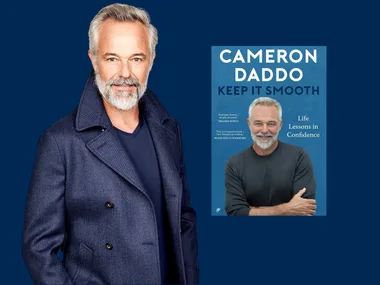As the sex scandal surrounding the International Monetary Fund chief rages on, Bryce Corbett questions whether the French have it right when it comes to sexual mores.
The arrest in New York at the weekend of International Monetary Fund chief, Dominique Strauss-Kahn, has caused shockwaves around the world, and once again raised the topic of whether sexual mores and relations between men and women in France are different to those in Anglo-Saxon-dominated cultures like our own.
The French financier is today facing charges that he sexually assaulted a maid in his New York hotel room. The maid alleges Strauss-Kahn, or DSK as he is known in his homeland, emerged naked from the bathroom when she came into his Sofitel hotel suite, grabbed her from behind and pulled her into the bedroom and attacked her.
Strauss-Kahn’s lawyer has denied any wrongdoing by his client, saying the head of one of the world’s most influential financial institutions and aspiring French presidential candidate will “vigorously defend” the charges made against him.
The news has caused a storm of controversy in France where DSK was widely touted as the man most likely to topple the current — and widely unpopular — French President, Nicolas Sarkozy in next year’s election.
It has also opened the gate on a flood of older sexual harassment complaints against Strauss-Kahn — including by the French writer, Tristane Banon who claims she was the victim of an alleged sexual assault at the hands of the politician in 2002.
DSK’s arrest has in turn sparked elaborate conspiracy theories in France, where newspapers, radio and the online sphere are buzzing with claims and counter-claims that the former economics professor — renowned for his weakness for women — was lured into a carefully staged, politically-motivated honey trap.
Strauss-Kahn’s wife, the accomplished and respected French TV journalist Anne Sinclair, has spoken publicly in defence of her husband, asserting that the charges will eventually be found to be false.
Whatever the truth that lies behind the ‘l’affaire DSK’, as it is being euphemistically referred to in France, the episode once again brings to the fore the prickly question of whether relations between men and women in France are drastically different to those that apparently prevail in Anglo-oriented countries like Australia.
I had the great pleasure of living in France for 10 years, returning to Australia only last year. The French have a reputation for being much less concerned about sexual indiscretions — including, most famously, infidelity — than their more stitched-up Anglo-Saxon cousins.
Certainly, living among them for a decade, it was easy to detect a distinctly more laissez-faire attitude to sex than any I had been previously used to. It is, in many ways, a more honest approach to human relations — allowing for shades of grey where we cling stubbornly to black and white.
Marriage in France is an institution regarded with at least the same seriousness as anywhere else in the world. And there is no question there are French couples who are as faithful to one another as married couples are in more prurient societies like Australia and the US.
However, France is still a stubbornly chauvinistic society. Despite French women being among the most self-assured, self-contained, self-confident and assertive women on the planet, they are very often dealt a rough hand in their homeland by a society that quietly condones promiscuity among its menfolk.
It is, in many ways, a peculiarly Latin trait and one that runs like a seam through the countries that hug the Mediterranean, including Spain and — most famously — Italy.
In the decade I lived in Paris, it was revealed former French President Francois Mitterrand had a secret second family stashed in the south of France while tales of his successor, Jacques Chirac’s extra-marital carry-on was the country’s most open secret.
Many French women will declare that they too are liberated by their culture’s apparent lack of prudishness when it comes to marital fidelity. They say that they too are free to act on sexual urges outside the strictures of their marriage. But unfortunately for them, women in France are hardwired in much the same way that women in Anglo-Saxon cultures are, meaning the straying is generally harder to do and tougher to take.
And so, many of them live with a double standard that suits their philandering men folk down to the ground. A kind of ‘don’t-ask, don’t tell’ mentality that ultimately serves to eat away at their confidence and sense of worth.
It’s a cliché, to be sure, to assert that all French men are cheats and all French women are victims. The country is too wonderfully diverse, its people too proudly assured to allow themselves to be characterised in such a clumsy way. But as long as the country’s political elite continues to be embroiled in sex scandals and — importantly — its behaviour indulged, accepted and ultimately excused by the electorate, the lot of French women is going to never be manifestly better.
Bryce Corbett is the Associate Editor of the Australian Women’s Weekly. He lived in France for ten years and has enormous respect for his former adopted home’s culture, people and heritage. Click here to follow him on Twitter.
Your say: Do you think the French have it right? Should we be more relaxed in our attitudes towards infidelity? [email protected]
Newsletter conversion description. Get the latest in your inbox.








































































.png?resize=380%2C285)
